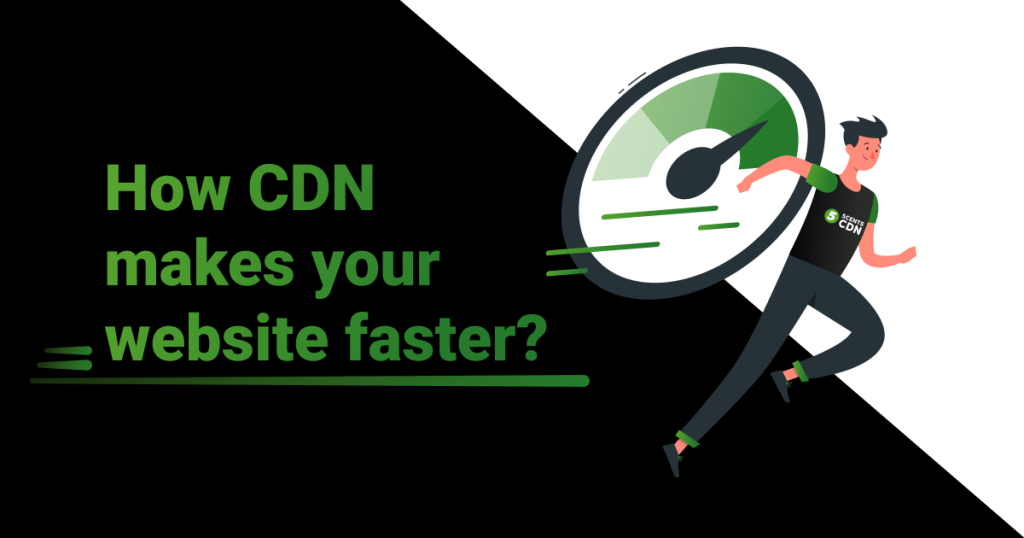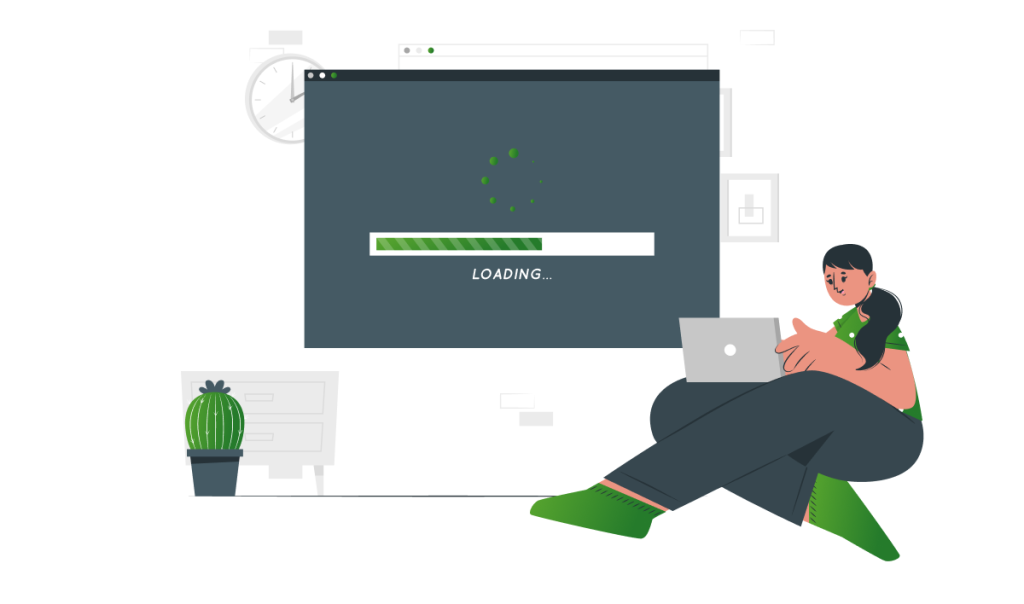What is the speed of your website? Is it fast enough for your customers? And How to make website fast? First-time users are highly likely to return to your website if it is fast, so what steps are you taking to ensure return visitors?

There is a good chance that your website could be faster than it already is. A content delivery network (CDN) facilitates faster delivery of content to users. It can be an efficient way to increase page speed and user engagement all at once. Optimizing the speed of a website is made possible by a CDN. Most people, however, do not understand how Content Delivery Networks (CDNs) influence optimization.
“CDNs” are geographically dispersed groups of servers that work together to deliver internet content quickly. They improve the performance of your website by temporarily placing content closer to your customers’ computers. The process is known as caching.
When someone in Canada visits your website that’s hosted in Hong Kong, instead of fetching content all the way from the “origin store”, the CDN retrieves it from an “edge server” geographically closer to the end user at the edge of the network. Visitors to your website will be able to access your content much faster if it doesn’t travel halfway around the world. It is possible to reduce bandwidth consumption and latency while improving security by shortening the path information has to travel.
The use of a CDN improves the user experience, accelerating the delivery of web content to the end-user as the delivery route is better. Additionally, a high volume of traffic can be handled by the servers used to deliver content at certain times due to their optimized traffic management.
How Does CDN Work?
In spite of the fact that a CDN consists of servers that host website content, a CDN cannot function independently as a web host. You must use traditional web hosting if you want your website to operate smoothly.
Content from your website is stored on servers closer to your end users on the CDN. This basically means that using CDN helps to load pages faster. To make any updates or changes to your website, it refers back to the original, main content stored on your origin store.
Unless your business is headquartered on-premises, you can use a cloud storage provider as your origin store instead, but many businesses prefer to use on-premises servers. Instead of investing in expensive on-premises servers and networking equipment, they can use cloud storage to scale up or down as website content grows.
Internet exchange points, or IXPs, are where CDN providers set up their edge servers. Your data will get to your end users faster by passing through these points, which are like highway interchanges.
In order to benefit from a CDN, you no longer have to be a large enterprise or have a worldwide presence. According to Akamai – one of the first providers of CDN services, more than half of world websites use CDNs to deliver content. Let’s learn more about factors that are impacted by fast CDN and help boost the speed of your website:
What Will We Discuss In This Blog ? How To Make Website Fast Loading Using CDN Helps To Load Pages Faster And Increase Conversion How Does CDN Work Factors That Are Influenced By A Fast CDN
Faster Loading Speed
Users may benefit from faster loading times by using a CDN that stores multiple types of content. It is also possible to deliver this content more rapidly.
An image on a CDN may be available in a variety of formats such as HTML, PDF, PPT, ZIP, et cetera. Other files may also be available, such as stylesheets, JavaScript, audio, and video files. CDNs can easily store any files saved in the WordPress wp-content or wp-include folders.
Your website can be faster if you use a CDN as it reduces the time it takes to search for, retrieve, and send information.
One of the biggest benefits of having a faster website includes a higher conversation rate. Conversions could increase by 14 percent if speed is increased by two seconds.

Higher Ranking
A CDN can also result in greater search engine optimization and ranking improvements due to the faster loading speed.
It is important for Google to prioritize websites that load faster and are easy to crawl. A website that is crawled frequently by Google notices content changes and updates more quickly. It will boost your content’s visibility in search results with this rapid indexing turnaround.
Consumers have more access to content that has been indexed faster. You can attribute it all to a cycle that begins with the health of your website. Consumers’ access to your content can be affected by even the most advanced features of your website.
In addition to providing additional security, CDNs can also reduce the risk of attacks. Additionally, you can increase security even further by combining a CDN with an SSL certificate. A website’s ranking and health are also greatly affected by security.
All of this makes a significant difference for consumers as they won’t be kept waiting to view your website.
Better Traffic Management
The goal of every website owner is to generate plenty of traffic and recognition for their brand or website through a certain content piece that goes viral. Do you think your website can handle a spike in traffic like this?
The use of a CDN can also be beneficial. A CDN can ensure content is delivered quickly and reduce server load because a significant portion of website traffic is static – it’s not changing constantly. Downtime is less likely when the load is lower.
It is designed to scale with changes in traffic (up or down) quickly and easily and without the need to learn about traffic changes through a broken or malfunctioning website.
Lower Bandwidth Cost
A server’s resources may be insufficient at times. It is extremely helpful to lower bandwidth costs in this case if static assets are offloaded to a CDN. It is likely that a CDN will handle more than 60-80% of the bandwidth for your website. When assets are offloaded to a CDN, the server’s bandwidth can be spent on serving the page requests coming from the user, instead of storing unnecessary assets.
Using a CDN means consuming less overall bandwidth since it distributes data between multiple servers. Using a CDN can help you reduce hosting costs if your hosting plan is based on bandwidth usage. It happens because the content is served from multiple locations to users, so not all inquiries to your website are served from the origin server concurrently.
Take a look at your hosting plan to determine whether this is a good option for you. Plan pricing varies depending on bandwidth, while others include unlimited usage.
The main method of reducing bandwidth costs through Content Delivery Networks (CDNs) is to cache content and use fewer resources. CDNs reduce bandwidth costs because they lessen the pressure on the origin host server. It is obvious how the two are related.
On a concluding note
A CDN is certainly worth considering if your website speed isn’t up to standard.
A website’s loading speed is very critical for your business’s success, regardless of whether it’s a store or a service. Visitors who come to your website and find it slow will likely leave to never come back.
CDNs are a great way to speed up your website. You can improve your search engine optimization, speed up your website, and reduce bandwidth costs by using them.